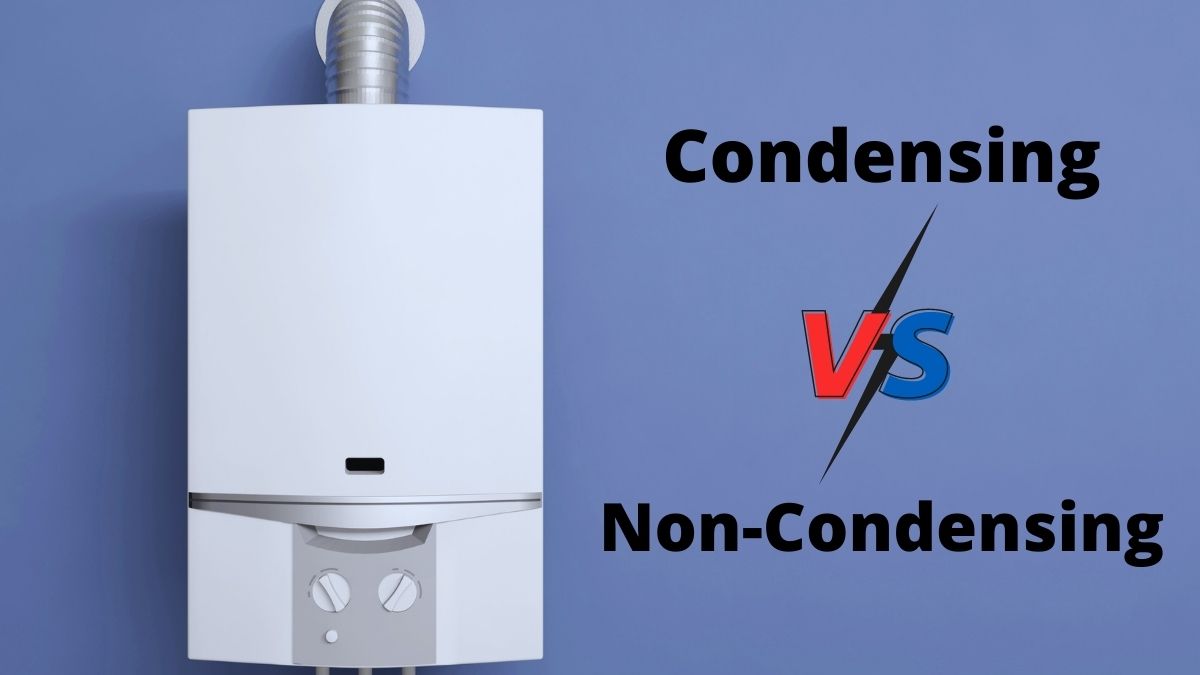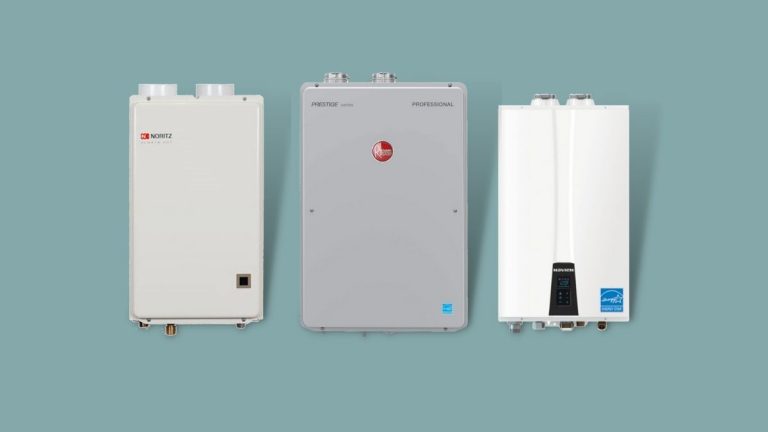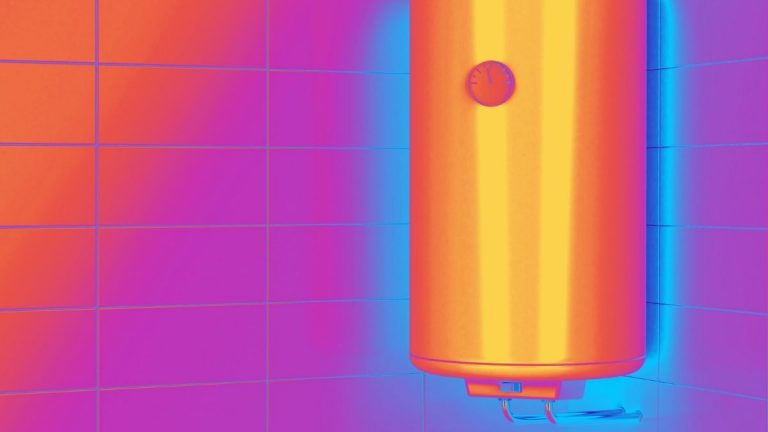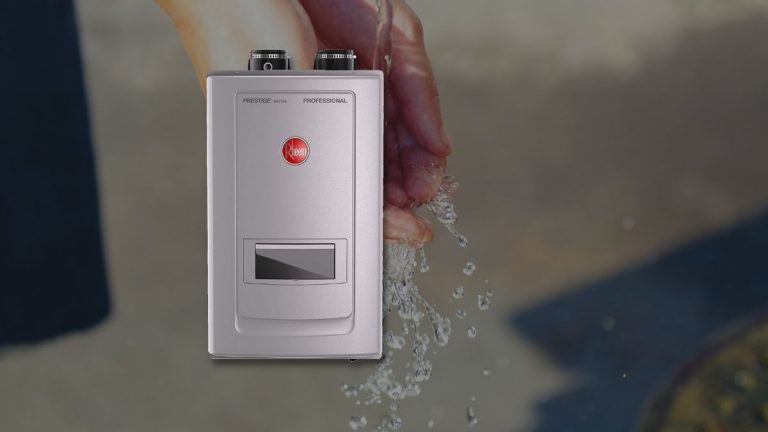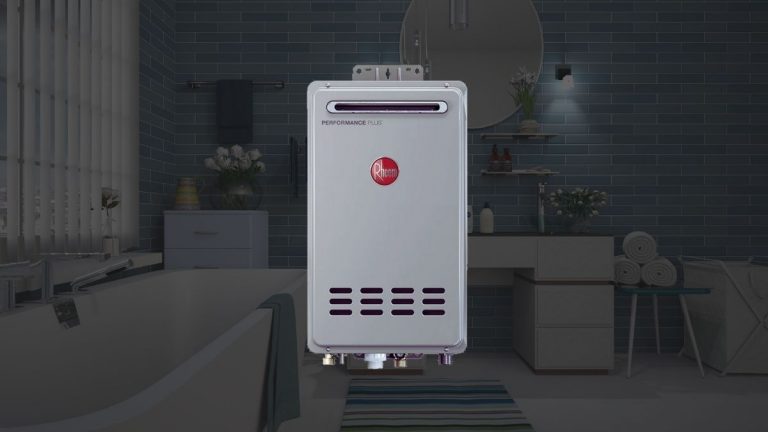Which is Better: Condensing vs Non-Condensing Tankless Water Heater
So you have done all your research, considered all types of water heaters including traditional tanks and tankless. And you have come to the conclusion that a gas-fired tankless water heater is best for your household needs since the fuel is easily available or for whatever reason.
And Just when you were deciding which one to buy, you found out that there are two variants; condensing and non-condensing. Now you have got questions like what’s the difference between them? Is one better than the other?
Well, I’ll answer all those questions and give you a clear understanding but first,
What’s a tankless water heater?
Tankless water heaters are exactly what the name says, water heaters without a storage tank.
Instead of maintaining a tankful of hot water all the time, a tankless water heater heats the water instantly on-demand. When the hot water fixture is opened, the cold water flows through the heat exchanger and heats water instantly.
There are electric and gas-powered tankless water heaters. Condensing and non condensing are the types available in gas-powered units.
Condensing vs non-condensing tankless water heaters
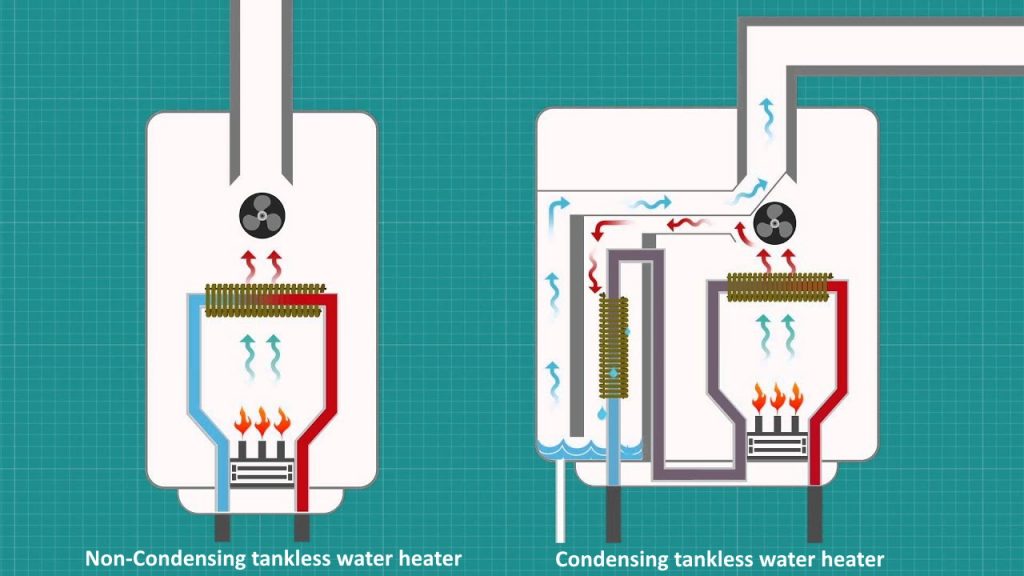
So now you have decided that you wanna go with a gas-powered tankless water heater. The next question arises is which one; condensing or non-condensing?
Let’s learn a bit more about each type.
Non-condensing tankless water heater
Non-condensing tankless water heaters are the most common type.
In this type of water heater, the unit burns fuel to heat water and releases the exhaust gases (~300°F) directly into the atmosphere where it cools down. Now, these hot gases released in the atmosphere are lost energy (heat). That means not all the energy of the fuel is being used to heat the water.
Non-condensing tankless water heaters are at most 80% energy efficient. The rest is lost in the atmosphere.
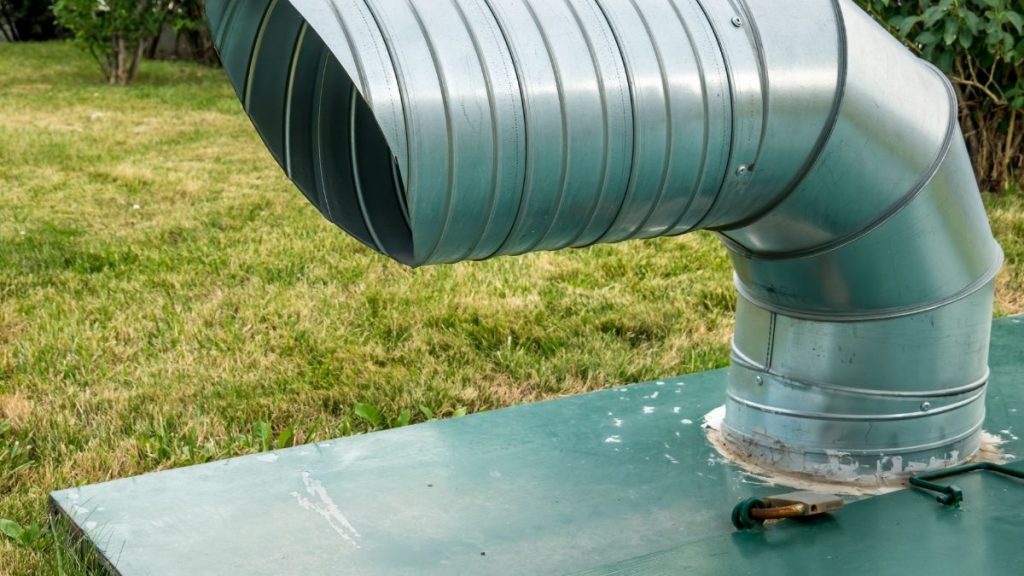
Also, a standard steel vent can not sustain the heat and corrosiveness of this hot exhaust gas. Venting for non-condensing tankless water heaters requires expensive category 3 stainless steel to sustain temperature and corrosion.
So although non-condensing tankless waters are cheaper, they are less energy-efficient and, require expensive venting.
Learn about gas vs electric tankless water heaters here.
Condensing tankless water heater
The condensing tankless water heaters work almost exactly like the non-condensing type except for one thing.
Condensing tankless water heater recycles the heat of hot exhaust gases (upto 300°F) released from the burning of fuel to preheat the incoming cold water with the help of a secondary heat exchanger. Now since this incoming water is little warmed up, the primary heat exchanger has to burn less fuel to heat water, and thus energy is saved.
This makes condensing tankless water heaters at least 90 to 98% energy efficient.
Also, after passing through a secondary heat exchanger, the exhaust cools down (100°F) and thus cheaper PVC schedule 30 pipes can be used for venting. The water vapors and other acidic content of exhaust is collected inside the unit and neutralized before draining
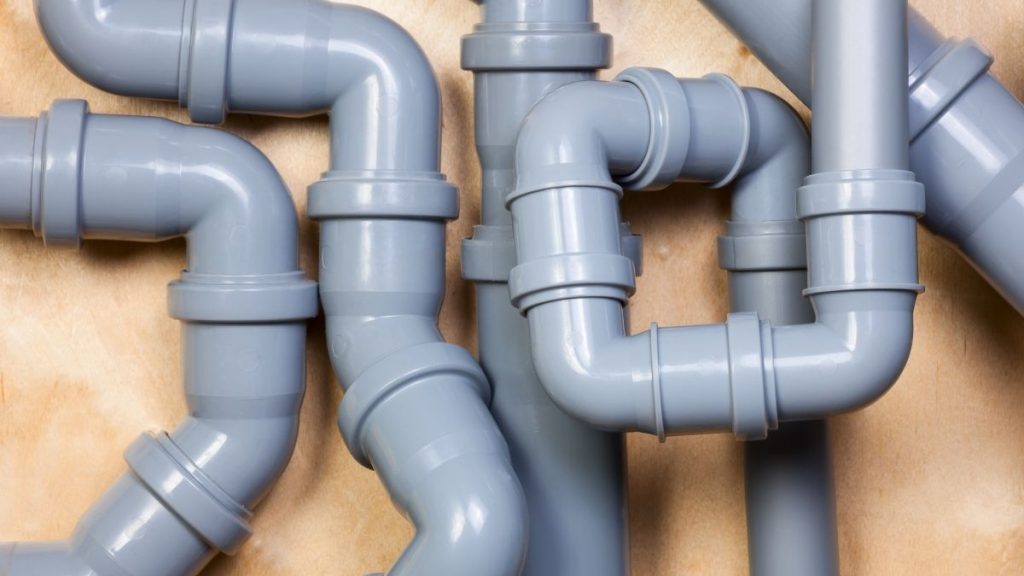
So condensing tankless water heaters are expensive but offers high energy efficiency and lower venting cost.
The thing here to note is that condensation depends on the surrounding air, atmosphere, and temperature. Check out the best condensing tankless water heater here.
FAQs: Condensing vs Non-Condensing tankless water heater
Are condensing water heaters worth It?
Yes, condensing water heaters definitely worth it. Of course, it’s gonna cost you more in initial investment as the unit is expensive but it will cost you lower in energy bill to heat water and you won’t need costly stainless steel venting. Condensing water heater heats more water for every dollar of fuel used. So in long run, you will save money on energy bills. The water heater is at least 90 to 98% energy efficient.
Is condensing better than non-condensing?
Condensing a tankless water heater is expensive compared to a non-condensing water heater but is 10 to 18% more energy efficient. That means you pay less in gas bills every month. And the material required for venting is also cheaper for condensing water heater.
What’s the difference between condensing and non-condensing?
Condensing water heater utilizes the heat of exhaust gases to preheat the incoming cold water so overall less energy is used to heat water. Thus condensing water heaters are 90 to 98% energy efficient.
While non-condensing water heater releases the hot exhaust gases directly into the atmosphere causing the loss of energy. That’s why such units are less efficient in the range of 80%.
How do you vent a non-condensing tankless water heater?
Non-condensing tankless water heaters if installed outside don’t require special venting and they can just vent it in the surrounding.
If the unit is installed inside then you may need to build a vent made of special grade stainless steel category 3 that can sustain the temperature and corrosiveness of the hot acidic gases.
Can you use PVC to vent a tankless water heater?
Yes and no! If you have a condensing tankless water heater then yes you can use PVC pipes for venting since exhaust gas won’t be very hot.
But if you have a non-condensing water heater that has very high-temperature exhaust gas then no. You will need expensive stainless steel venting.

